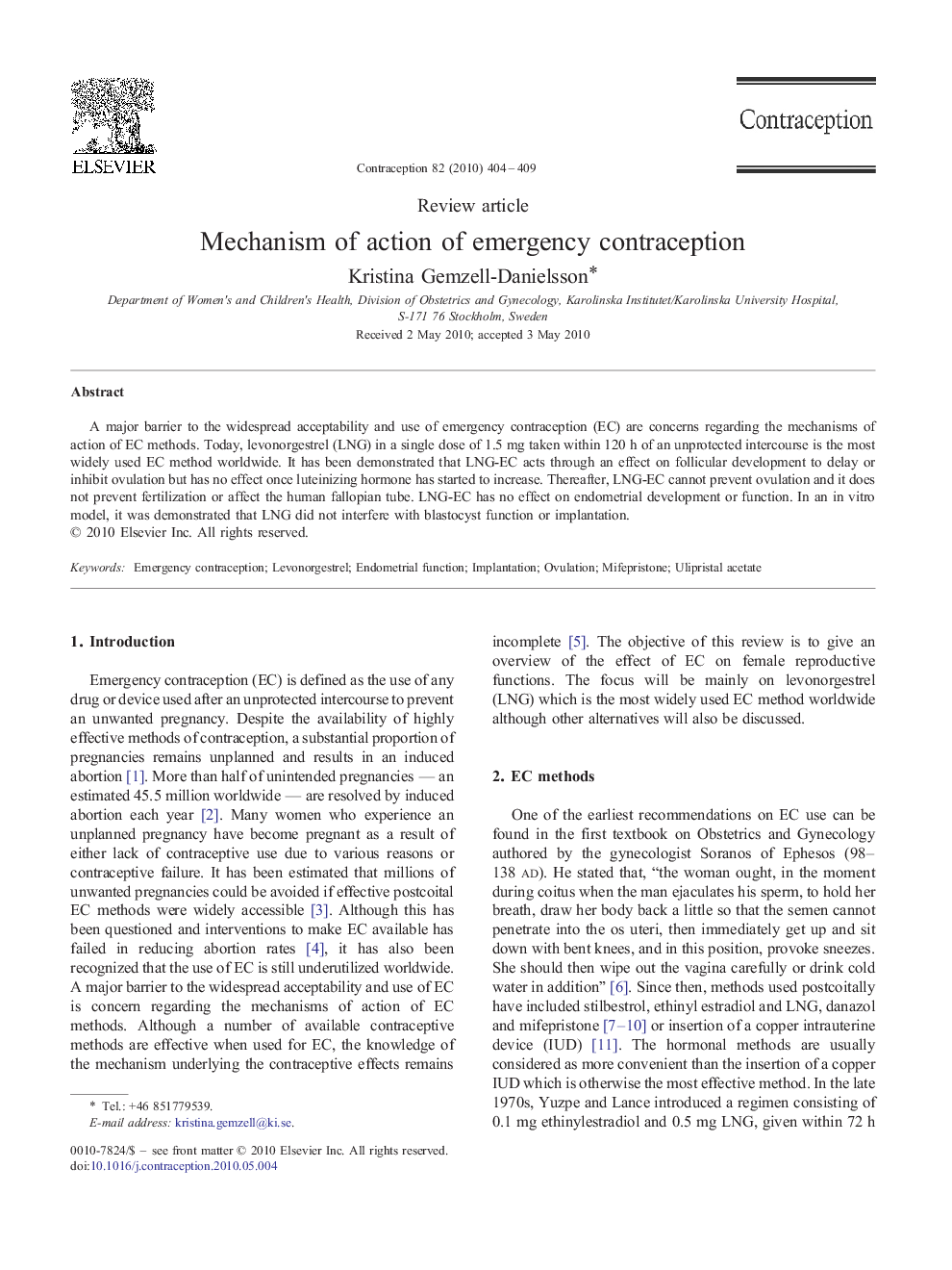| کد مقاله | کد نشریه | سال انتشار | مقاله انگلیسی | نسخه تمام متن |
|---|---|---|---|---|
| 3914437 | 1251474 | 2010 | 6 صفحه PDF | دانلود رایگان |

A major barrier to the widespread acceptability and use of emergency contraception (EC) are concerns regarding the mechanisms of action of EC methods. Today, levonorgestrel (LNG) in a single dose of 1.5 mg taken within 120 h of an unprotected intercourse is the most widely used EC method worldwide. It has been demonstrated that LNG-EC acts through an effect on follicular development to delay or inhibit ovulation but has no effect once luteinizing hormone has started to increase. Thereafter, LNG-EC cannot prevent ovulation and it does not prevent fertilization or affect the human fallopian tube. LNG-EC has no effect on endometrial development or function. In an in vitro model, it was demonstrated that LNG did not interfere with blastocyst function or implantation.
Journal: Contraception - Volume 82, Issue 5, November 2010, Pages 404–409